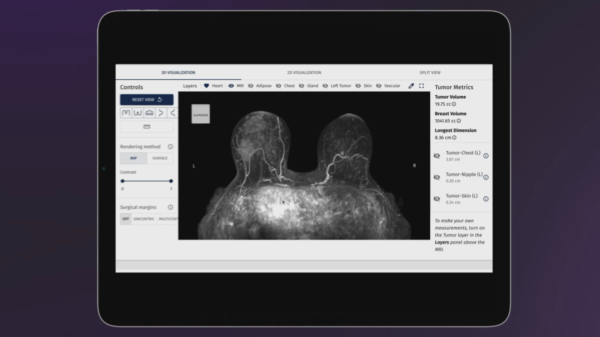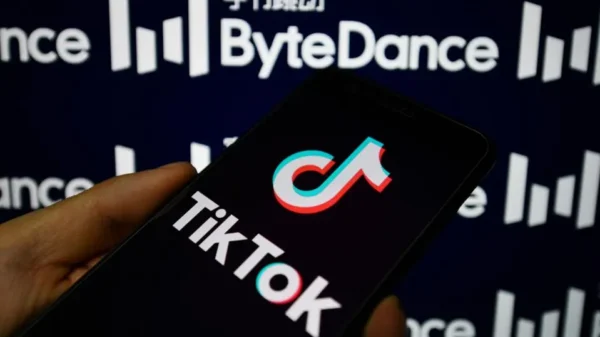NetraMark Holdings Inc. (CSE: AIAI) (OTCQB: AINMF) (Frankfurt: 8TV) presented new data demonstrating the capability of its NetraAI clinical trial software to organize various factors related to neurodegenerative disorders like Parkinsons (PD) and Alzheimer’s Disease (AD).
On Monday, the company announced using NetraAI’s processes to analyze a dataset of 588 individuals provided by the Michael J. Fox Foundation and identified multiple markers associated with PD pathogenesis, or how the disease develops and spreads in the body, including several closely linked to the immune system and immune responses.
The artificial intelligence (AI) revolution involves using smart technology to solve complex problems.
AI analyzes huge amounts of data, finds patterns, and makes decisions on its own. It’s being used in many fields, from healthcare to finance, to make things faster, smarter, and more efficient.
One of the potential use cases for artificial intelligence is in preclinical and clinical trials. AI has the potential to transform preclinical and clinical trials by accelerating drug discovery, optimizing trial design, improving patient recruitment and monitoring, and enhancing data analysis efficiency.
Pharmaceutical companies and researchers can also use AI to bring innovative treatments to market faster.
The poster is called “Using NetraAI to Discover Parkinson’s Disease Subtypes: Generative AI Reveals Transcriptomic Personas Linking Mitochondrial, Microbiome, and Immune Signaling.”
Read more: Engineer charged with stealing Google’s AI secrets for China arrested in California
Read more: Alibaba leads largest-ever funding round for a Chinese AI startup
AI could be a game changer for drug discovery
It presents the results of an analysis where NetraAI identified genetic drivers within specific PD patient subpopulations and uncovered disease pathways. Researchers analyzed a dataset consisting of 397 patients with PD and 191 controls using NetraMark’s AttractorAI algorithms to identify variables explaining specific subpopulations within the dataset.
The company presented the data in a poster at the AD/PD 2024 conference, held in Lisbon, Portugal.
Another place that AI could theoretically have an outsized influence is in the process and pursuit of drug discovery.
Researchers have been pursuing a fast track to drug discovery for decades. However, the process has been slowing down, becoming riskier and more expensive.
Typically, it takes 12–15 years from initiating a discovery program until national drug-regulatory agencies grant marketing approval, according to the publication Nature. Additionally, about nine out of ten drugs that enter clinical trials fail to get approval. Estimates indicate that bringing a drug to market costs around USD$2.5 billion.
Drug development entails several specific steps. It begins with identifying a biological target responsible for a disease, such as DNA, RNA, a protein receptor, or an enzyme, and then screening molecules that may interact with it. This initial stage is known as the discovery stage.
In the case of most drugs, the resulting candidates are small molecules. Medicinal chemists then strive to enhance their activity and mitigate any associated issues.
Upon successful optimization, researchers develop a lead molecule to progress to the next stage—preclinical testing. This phase involves conducting tests to elucidate how a drug candidate is metabolized, distributed, and excreted by an animal’s body.
Read more: Reddit inks major AI training deal with Google, files for public listing in New York
Read more: Nvidia CEO foresees tech advances to keep AI cost in check
Five startups are changing drug discovery
Beyond the large-scale AI operations offered by drug companies like Pfizer Inc. (NYSE: PFE) and GSK plc (NYSE: GSK) (LON: GSK), there are also a handful of startups using the technology.
San Francisco-based Atomwise uses AI to improve small molecule drug discovery. It aims to streamline the drug discovery process for increased efficiency. Its approach shifts drug discovery away from serendipity towards structure-based search, enhancing effectiveness.
The company collaborated with pharma giant Sanofi SA (Euronext Paris: SAN) to use its AtomNet platform for computational discovery and research across up to five drug targets.
Cradle, a Dutch startup, uses generative AI to help biologists design improved proteins, accelerating research and development for bio-based products.
The AI is trained on billions of protein sequences and data from its own lab. The company’s models facilitate engineering various protein modalities, including enzymes, vaccines, peptides, and antibodies.
Exscientia (NASDAQ: EXAI) focuses on discovering, designing, and developing drugs using AI technology.
It developed the first functional precision oncology platform and progressed AI-designed small molecules into clinical settings. Exscientia’s most advanced candidate, GTAEXS617, is undergoing testing in a phase 1/2 trial for treating advanced solid tumors.
French-based Iktos employs AI for rapid identification of small molecules suitable for clinical development. The company is working towards, expediting drug discovery and increasing success rates. With over 50 collaborations, including Janssen, Merck (NYSE: MRK), and Pfizer, Iktos offers products like DockAI, Makya, Spaya, and Spaya API to improve productivity in small molecule drug discovery.
Hong Kong-based biotech firm Insilico Medicine employs AI throughout pharmaceutical research and development to reduce time and cost associated with bringing medicines to market. Its Pharma.AI suite integrates biology, chemistry, and clinical trial analysis, comprising PandaOmics, Chemistry42, and InClinico.
.
Follow Joseph Morton on Twitter
joseph@mugglehead.com














